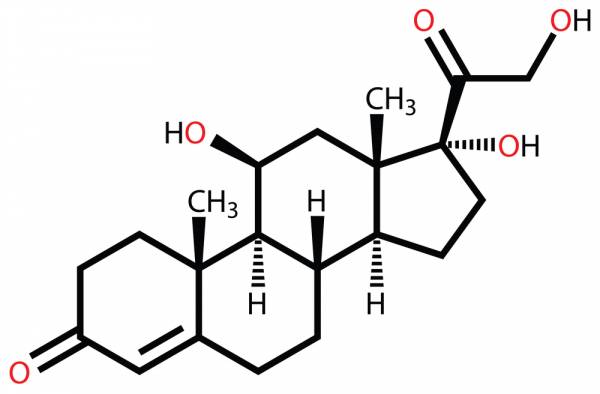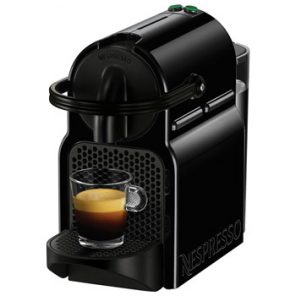
I’m not sure about you, but one of the first things I do every morning is brew myself a nice, hot cup of coffee at home. I then swing by my local coffee shop en route to the office, where they know me so well they greet me by name and start prepping my Americano the second they see me walk through the door. Weekends are no different, and always begin with at least one, and more often than not three, cups of coffee. Needless to say, my morning routine revolves around caffeine.
However, as it turns out, morning may not be the best time to drink coffee. I know! When I first read that, my mind was blown too. Mornings and coffee go together like peanut butter and jam, don’t they? Well, according to research on the 24-hour circadian clock gathered by Steven Miller, a PhD candidate at the Uniformed Services University of Health Sciences, the early morning hours are in fact the worst time to drink coffee.
Our circadian clock, caffeine, and science
As a result of his research on our circadian clocks, Miller claimed that drinking coffee between 8am and 9am may not give us the kind of boost we expect it to. This is due to the natural effect of a hormone called cortisol on our bodies.
Here’s the deal. We are all guided by a 24-hour hormonal cycled called the “circadian clock,” which is preprogrammed into our genes. This internal body clock is largely guided by sunlight–although we can mess with it via a number of lifestyle habits–and regulates sleeping and feeding patterns, alertness, core body temperature, brain wave activity, cell regeneration, and hormone production, among many other biological activities. One hormone in particular this clock regulates is the release of cortisol, which makes us feel alert and awake.
Here’s the kicker: cortisol is at its peak production between 8am and 9am. Because cortisol naturally makes your body active, drinking a cup of coffee during this peak time may do nothing perk you up or increase your wakefulness. In fact, research shows that the effects of caffeine are actually diminished if consumed when your cortisol levels are at their peak. Oh, and there’s this too: “By consuming caffeine when it is not needed, your body will build a faster tolerance to it, and the buzz you get will greatly diminish.” Well, isn’t that just awesome? So, no coffee between 8 and 9am.
 When should we drink coffee then?
When should we drink coffee then?
So, therein lies the question: When should we drink coffee? Cortisol levels peak in most people three times a day: between 8 and 9am, 12 and 1pm, and 5:30 and 6:30pm. So, to get the most out of a cup of Joe, time your caffeine fixes between 9:30 and 11:30am, and 1:30 and 5:00pm when your cortisol levels dip and you need a boost the most. At other times, let your body “self-caffeinate.”
Drinking coffee in the evening
When I read the above suggestion that we should time our coffee breaks between 9:30 and 11:30am and 1:30 and 5:00pm, I was a little shocked. I know that if I were to have a cup of coffee around 5pm, I would definitely struggle to fall asleep. That said, I also know people who religiously have a shot of espresso after dinner and have no problem shutting off when the time comes. So what’s the deal?
Researchers at the MRC Laboratory of Molecular Biology and the University of Colorado found that caffeine adds a delay of as much as 40 minutes into our internal circadian clocks, and consuming it in the evening delays our brain’s release of melatonin, which is the hormone responsible for making us sleepy. The bottom line is that caffeine affects everyone differently, but generally speaking, it’s best to not drink anything caffeinated within six hours of your planned bedtime. If you have more of a tolerance, three or four hours might suffice.
What about decaf?
 If you are craving a cup of coffee in the post-dinner hours, or perhaps during times when your cortisol levels are at their peak, you may want to opt for decaf. However, be aware that sticking to decaf isn’t going to eliminate caffeine from your coffee entirely, because even decaf comes with at least a small amount of caffeine. While a fully charged cup of coffee contains about 85 milligrams of caffeine, a cup of decaf contains somewhere in the range of 8.6 to 13.9 milligrams.
If you are craving a cup of coffee in the post-dinner hours, or perhaps during times when your cortisol levels are at their peak, you may want to opt for decaf. However, be aware that sticking to decaf isn’t going to eliminate caffeine from your coffee entirely, because even decaf comes with at least a small amount of caffeine. While a fully charged cup of coffee contains about 85 milligrams of caffeine, a cup of decaf contains somewhere in the range of 8.6 to 13.9 milligrams.
I only recently embraced decaf for those nights when I was working late and needed a “boost” but also wanted to be able to fall asleep the second I was finished my work. For me, it was a self-imposed placebo effect. I knew the decaf wasn’t going to give me the kick I would have expected from a cup of regular coffee, but just sipping it made me feel like I was more alert. That’s actually also why I love single serve coffee makers because you don’t have to brew a full pot. You can alternate between regular and decaf when need be, and do a better job of monitoring your overall coffee intake.
Wrapping it up
According to the Canadian Coffee Commission, in 2015, coffee was the most commonly consumed beverage, followed by tap water. It goes without saying then that coffee in all its varieties is part of our daily lives. However, because of our biological makeup, our habit of consuming coffee first thing in the morning isn’t really doing us any favours. So, skip that early morning cup o’Joe and let your body’s cortisol give you a natural kick. Then you can plan your coffee breaks around times of the day when it is at its lowest. Even better, invest in a programmable coffee maker that will do the planning for you.



